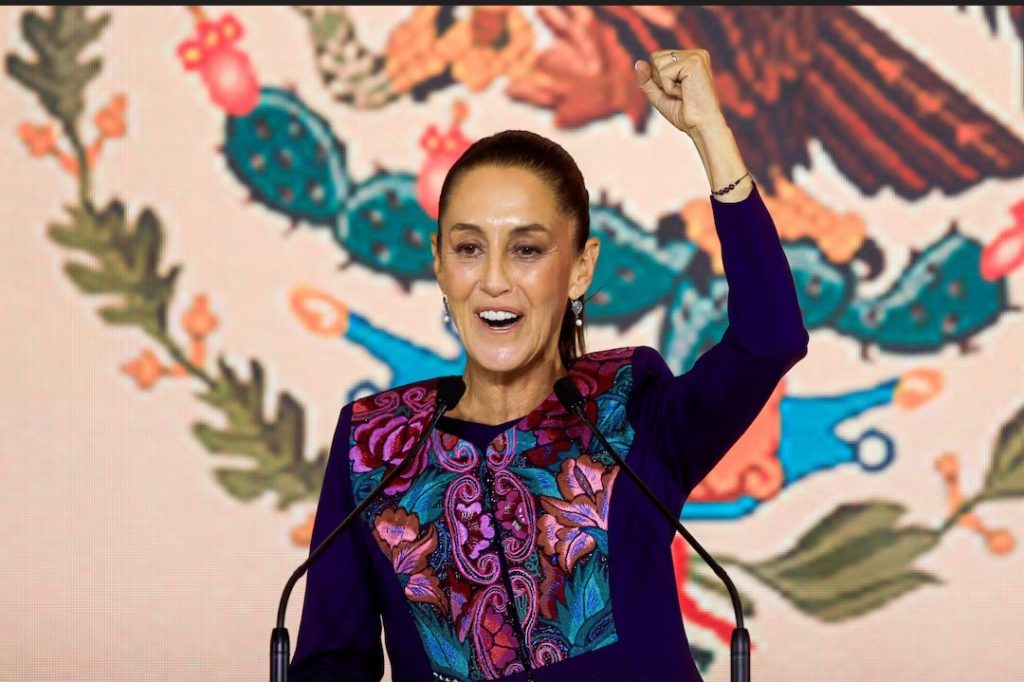
Ofure Akhigbe
“My view is, if I don’t file a complaint, what will happen to other Mexican women? If they do this to the president, what will happen to all women in our country?” President Claudia Sheinbaum said on Wednesday, as she announced plans to press charges against a man who groped her during a public appearance in Mexico City — an incident that has ignited a nationwide conversation on women’s safety.
The assault occurred on Tuesday near the National Palace, when Sheinbaum was greeting supporters. Mobile phone footage shows a man approaching her from behind, attempting to kiss her on the neck and touch her. Sheinbaum quickly moved away as one of her aides intervened, and the suspect was later arrested.
Speaking at a news conference, Sheinbaum said her decision to press charges was both personal and symbolic. “I decided to press charges because this is something I experienced as a woman, but that we as women experience in our country. I have experienced it before, when I wasn’t president, when I was a student,” she said.
Sheinbaum added that the suspect had allegedly harassed other women in the crowd, saying, “A line must be drawn.” Her statement has since been echoed by activists and civil society groups calling for stronger protections and enforcement measures to safeguard women’s safety in public spaces.
Women’s rights groups and feminist commentators condemned the assault, describing it as a reflection of Mexico’s deep-rooted machismo culture — one in which even the nation’s highest officeholder can be targeted. They warned that the attack underscores the urgent need for reforms to improve women’s safety across all levels of society.
Mexico continues to struggle with femicide, with about 98% of gender-based killings going unpunished. Despite Sheinbaum’s campaign pledge to tackle violence against women, critics say progress has been limited since she assumed office.
The incident has also rekindled debate about presidential security. Like her predecessor Andrés Manuel López Obrador, Sheinbaum maintains close contact with citizens during public engagements — a stance that some view as admirable but risky.
She confirmed she would continue that approach despite concerns. “I will continue to interact with the people — that’s who I am,” she said.
The attack came just days after the murder of Carlos Manzo, mayor of Uruapan in the violence-hit state of Michoacán, during Day of the Dead celebrations. Manzo had recently appealed to Sheinbaum for greater federal support in the fight against organized crime.
His death highlights the growing danger faced by public officials and citizens alike amid Mexico’s escalating violence. For many, Sheinbaum’s ordeal has become more than a personal assault — it has become a defining moment in the national struggle for women’s safety, accountability, and respect.
